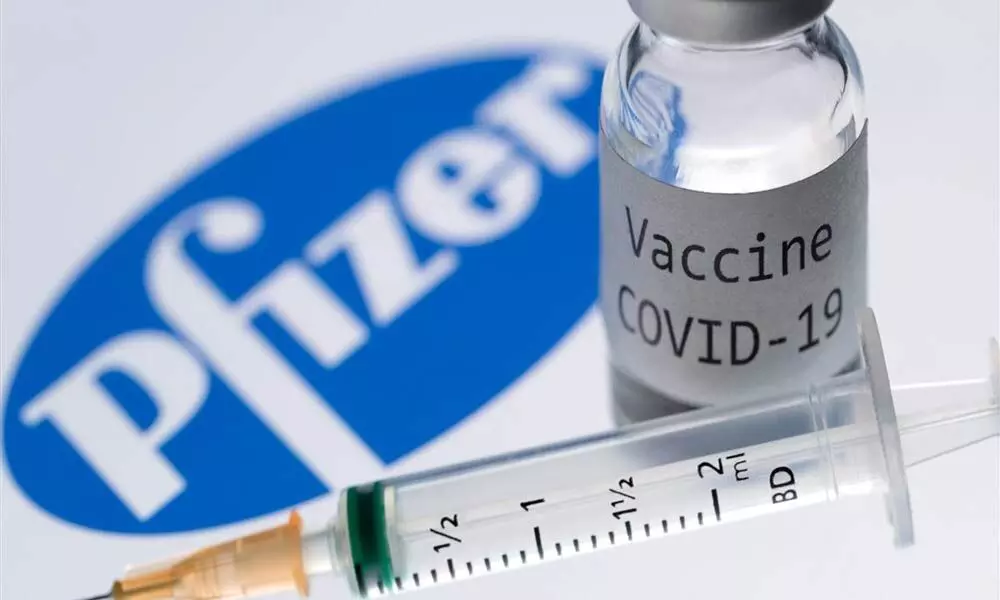US allows emergency use of Pfizer vaccine

For representational purpose
US regulators have given the final go-ahead to the country's first Covid-19 vaccine from Pfizer and its German partner BioNTech,
New York: US regulators have given the final go-ahead to the country's first Covid-19 vaccine from Pfizer and its German partner BioNTech, marking the beginning of the end of a catastrophic outbreak which has killed nearly 300,000 Americans in just 11 months this year.
The US joins the UK and Canada in kicking off mass vaccinations after vaccine development succeeded at record speed.
Initial doses are limited and the US has already passed up a chance to book millions of additional doses of the Pfizer vaccine for the early part of 2021.
Whatever is available now will go first into the arms of frontline healthcare workers and nursing home residents.
Pfizer said it would have 25 million doses of the two-shot vaccine for the US by the end of December.
On Thursday after nine hours of non-stop debate, a high powered US vaccine advisory panel endorsed mass use of the Pfizer-BioNTech Covid-19 vaccine, putting the final sign-off in the hands of the US Food and Drug Administration (FDA).
The FDA approval has come within 24 hours.
In a 17-4 vote, the usually obscure Vaccines and Related Biological Products Advisory Committee (VRBPAC), decided that Pfizer's shot is safe in people aged 16 and older.
Before the final vote, which came AT around 6 p.m. on Thursday, the chair of the vaccine panel boiled down the issues to a single question: "Do the benefits of the Pfizer vaccine outweigh its risks for vaccination in people aged 16 and older?"
The sticking point for the last one hour was about vaccine safety in 16 and 17 year olds.
:The data is thinnest in this age group," said one of the vaccine advisory members.
At least three members said they would prefer vaccinations only for people older than 18.
"The question is whether you know enough" to get the country to a safer place, said panel member Paul Offit fromf the Children's Hospital of Philadelphia.
Offit voted to greenlight the vaccine.
On December 17, the FDA vaccine panel will review a vaccine from Moderna and the National Institutes of Health, which has also shown over 90 per cent protection.
Vaccines from Johnson & Johnson (single dose) and AstraZeneca/Oxford University are also in the pipeline. Multiple vaccines must succeed for countries to crush the virus.
The Pfizer-BioNTech vaccine is yet to be tested among pregnant women and the immunocompromised.
There is also not enough data on children under 16, although trials are on among children as young as 12.
Pfizer made a strong pitch for its vaccine for "prevention of Covid-19 in individuals 16 years and older, with or without evidence of prior infection".
Pfizer said its overall vaccine efficacy of 95 per cent was observed in both younger and older adults as well as in diverse demographics.
"In addition, we have demonstrated a favorable safety and tolerability profile in more than 40,000 individuals," Kathrin Jansen, Head of Vaccine research at Pfizer, told US regulators on Thursday.
Responding to multiple questions on efficacy in 16 and 17 year olds, Pfizer suggested that efficacy in older populations could be extrapolated downwards into the pediatric population.
William Gruber, Pfizer's Senior Vice President of Vaccine Clinical research, listed fever, chills and pain at the injection site as the most commonly reported adverse effects after vaccination.
Pfizer's dash to the finish line has broken all vaccine development speed records, and on a new mRNA technology platform.
The coronavirus itself isn't there inside the mRNA vaccine.
Instead, it is embedded with a piece of genetic code that trains our bodies to recognize imminent enemy action from the spike protein on the surface of the virus.
When the mRNA enters our cells, it begins to spew copies of the coronavirus' spike protein. That prompts the immune system to churn out antibodies against the virus.
In virology, generating neutralising antibodies is a good surrogate of our bodies' ability to protect from sickness.








